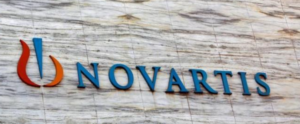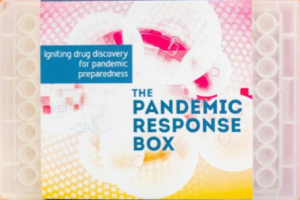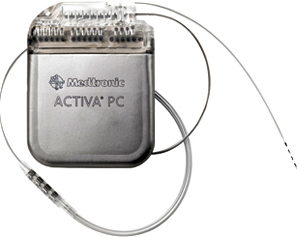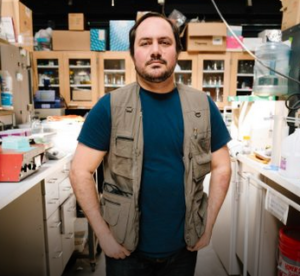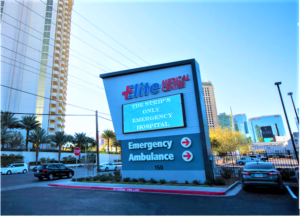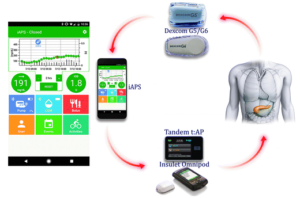- Exclusive: Novartis pitches discounts on pricey gene therapy for deadly muscle disorder (reuters.com)
Novartis AG is offering price discounts in negotiations with U.S. health insurers on its gene therapy for spinal muscular atrophy, a treatment that could cost more than a million dollars, but the gesture comes with strings attached...The Swiss drugmaker wants insurers to commit to coverage for patients identified with the rare and often deadly disease...Novartis also seeks their support for widespread screening to identify newborns with SMA, and to ensure quick authorization for the gene therapy, with the aim of starting treatment within two weeks of diagnosis...The U.S. Food and Drug Administration is due to decide this month on approval for Novartis’ Zolgensma. Novartis, which has made a huge bet on gene therapy for future growth, says the one-time treatment could be a cure for SMA and is pushing for a price in the range of $1.5 million to $5 million. That would make Zolgensma the most expensive new therapy to date...READ MORE
- MMV and DNDi create a response box to foster R&D for pandemic diseases (pharmaceutical-technology.com)
Medicines for Malaria Venture has collaborated with the Drugs for Neglected Disease initiative to create a pandemic response box, which contains 400 structurally diverse antibacterial, antiviral and antifungal compounds to help accelerate the discovery and development of new treatments of pandemic diseases...The response boxes are available free of charge to global researchers from universities and pharmaceutical companies. In return, researchers are expected to publicly share results from research and development based on the compounds within two years of obtaining a box...MMV chief scientific officer Dr Timothy Wells said: The pandemic response box came about in response to the need to be prepared for a future global health emergency...Open innovation is one of the keys to unlocking new potential for drug discovery and tapping into existing expertise to kickstart new research efforts...
- Swiss team develop ‘microswimmer’ robot to deliver drugs through the body (reuters.com)
A tiny sliver of elastic material swims along inside a narrow tube, coiling up and changing shape in response to the thickness of fluid and the contours of the tube around it as it moves towards its goal...The miniature robot - the bacteria-inspired brainchild of a team of scientists in Switzerland seeking new methods to deliver drugs to diseased tissue - is designed to wend its way through blood vessels and other systems in the body...The tiny soft microswimmer robot they have developed is a few millimeters in length and made using a folding technique similar to the Japanese art of origami, helping it adapt to the environment around it...
- CES 2019: A little-known pain relief tool could end the opioid crisis (reviewjournal.com)
Nerve stimulation to treat neurological conditions such as Parkinson’s disease, addiction and chronic pain has been around for the past five decades...But the lack of knowledge of its existence — and proven effectiveness — led in part to the rise in the national opioid epidemic, five doctors and engineers said during a panel at CES...This discussion, titled “The Solution to the Opioid Crisis No One is Talking About,”...neuromodulation to treat chronic pain...is a very safe and effective therapy, with a lot of data and publications to back it up...This is a very safe and effective therapy, with a lot of data and publications to back it up.”...electrodes on a needle stimulate nerves in the spine to eliminate pain...Some implants last up to a decade...It’s what Rafael Carbunaru, head of research and development at Boston Scientific, called the “ultimate wearable.”...It sounds like a dream. So why isn’t it the norm in treatment, and why don’t more patients know to ask their doctors about it?...
- Insulin has become so expensive that this diabetic is trying to make his own (cnbc.com)
Insulin is a life-saving drug for diabetics. Since 2002, the price has more than tripled and some diabetics can’t afford it. People have died rationing their doses, and some are turning to other countries to buy it at a cheaper price...Now, there’s a team of biohackers called the Open Insulin Project in Oakland, California who are trying to make it...The project was co-founded by Anthony Di Franco. He’s a type 1 diabetic who is trying to prove there are easier, cheaper ways to make insulin rather than rely on the big manufacturers like Eli Lilly, Novo Nordisk and Sanofi.
- Emergency room off Las Vegas Strip makes waves with new business model (reviewjournal.com)
Just like any full-service emergency room, Elite Medical Center treats a range of urgent medical problems, from headaches to heart attacks. But unlike at the other ERs in Southern Nevada, you’ll generally pay more for your care...That’s because the facility doesn’t contract with any insurer. So if you break a bone or your child has an earache and you go there, you’ll be paying for out-of-network care...Elite is licensed as a hospital by the state, but experts say it is operating similarly to free-standing emergency rooms that have become common recently in other states. It is the only unaccredited hospital in Clark County that provides emergency care but doesn’t contract with insurers...There’s no license for a free-standing ER in Nevada, though hospitals are allowed to open satellite emergency rooms that provide care at other locations....State law doesn’t mandate that these facilities be accredited by the federal Centers for Medicare or Medicaid Services or accept any insurance, private or public...“We don’t think that’s appropriate,” said Bill Welch, president and CEO of the Nevada Hospital Association, which represents UMC and 65 other medical facilities statewide. “We think that Elite Medical Center, if they want to operate as a hospital in the state, that they should operate as a CMS-certified center and they should be accredited and Medicare-participating. Without those things, we’re concerned.”
- Computerized method helps better protect pharma patents (news-medical.net)
Routes to making life-saving medications and other pharmaceutical compounds are among the most carefully protected trade secrets in global industry. Building on recent work programming computers to identify synthetic pathways leading to pharmaceutically complex molecules, researchers in Poland and South Korea have unveiled computerized methods to suggest only synthetic strategies that bypass patent-protected aspects of essential drugs...When we started this project, I was somewhat skeptical that the machine would find any viable synthetic alternatives--after all, these are blockbuster drugs worth gazillions of dollars, and I was sure that the respective companies had covered the patent space so densely that no loopholes remained. It turns out that the loopholes are there, and we can find new retrosynthetic pathways that circumvent the patents entirely."( Bartosz Grzybowski )...the researchers hope that their software will aid pharmaceutical companies in better protecting their intellectual property and, simultaneously, will help accelerate research and development in organic chemistry by supplying synthetic routes that differ from standard approaches.
- Experimental phone app works with insulin pumps to control diabetes (reuters.com)Design and Clinical Evaluation of the Interoperable Artificial Pancreas System (iAPS) Smartphone App: Interoperable Components with Modular Design for Progressive Artificial Pancreas Research and Development (liebertpub.com)
An artificial pancreas system that uses a smart phone app coupled with a glucose sensor and an insulin pump has shown promise in a preliminary trial in people with type 1 diabetes, researchers report...Currently, patients with type 1 diabetes must check their blood sugar levels throughout the day. Many use insulin pumps that deliver a set amount of the hormone to the body through a catheter 24 hours a day. But meal consumption, exercise and other factors can boost blood sugar levels or cause them to drop, and then the patient needs to adjust the amount of insulin being pumped into the body...The new app, which was tested under Food and Drug Administration protocols on six adults with type 1 diabetes, works with two different brands of pumps and two types of glucose sensors...Larger studies are needed to confirm the safety and effectiveness of the new artificial pancreas app. But a big advantage would be that it can be used on the person’s own cell phone...
- Microsoft, Walgreens deal brings promise of reducing healthcare costs (pharmaceutical-technology.com)
A seven-year venture between tech giant Microsoft Corp and the US pharmacy retail chain Walgreens Boots Alliance is expected to bring competition to the healthcare sector on the back of lower costs...In a deal signed recently – which will see Walgreens use Azure, Microsoft’s cloud-computing platform – the companies signalled their common ambition to take on Amazon.com Inc, another tech giant disrupting the healthcare space...Walgreens will roll out 12 new “digital health corners” for its US stores this year, which have been designed to promote the sale of health-related devices and to help patients manage chronic diseases...The deal will help Walgreens accumulate personalised data about patients’ health, which it said will allow pharmacists to give customised nutrition and wellness solutions using digital devices and apps as well as in-store expert advice...
- Louisiana launching ‘Netflix model’ in Medicaid for hep C drugs (biopharmadive.com)
The Louisiana Department of Health is seeking a drug manufacturing partner for unrestricted access to curative hepatitis C treatments for Medicaid and incarcerated patients. Rather than pay the partner by prescription, the state would agree to pay a subscription fee similar to the Netflix model of paying a fixed monthly cost rather than paying per movie... The state said the plan is an attempt to help end the hep C epidemic in Louisiana. At least 39,000 people in the state's Medicaid program or in its prisons have the disease... fewer than 3% of Medicaid patients in Louisiana with hep C were treated last year. State officials blamed the lack of treatment on high drug prices.

